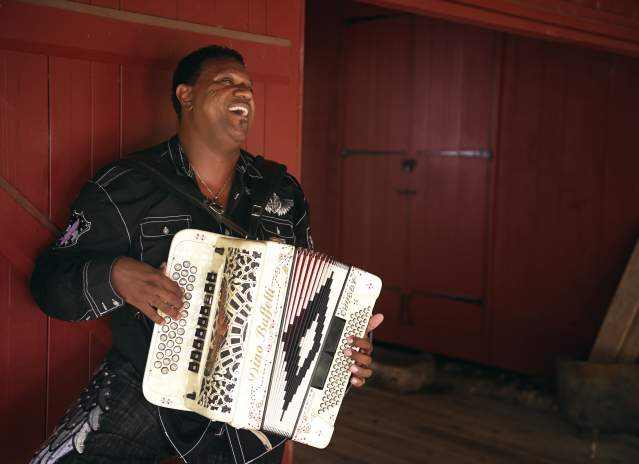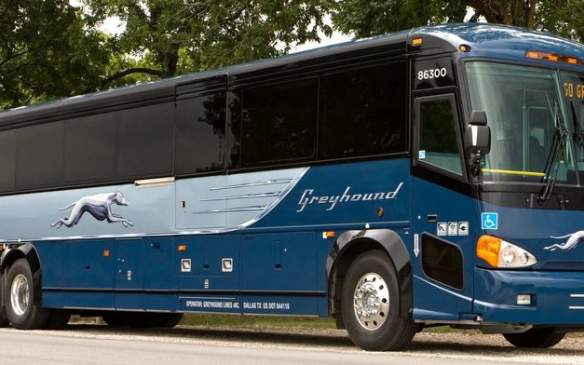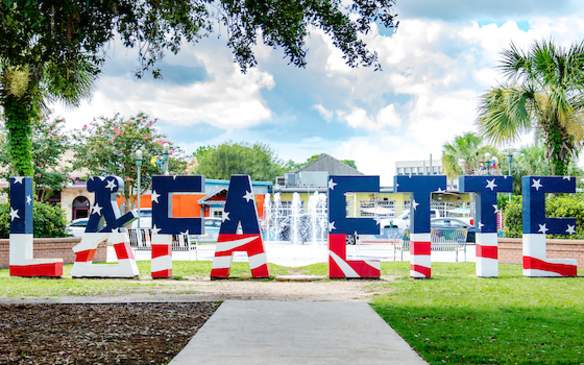Your browser is not supported for this experience.
We recommend using Chrome, Firefox, Edge, or Safari.
Chubby Carrier
The road to Chubby Carrier’s house is a picturesque view of rural Louisiana. Surrounded by cane fields and open stretches of farm land on the outskirts of Lafayette, LA, the Carrier residence evokes feelings of home that any Southerner can relate to. Chubby’s energy is infectious. He speaks with such joie de vivre that guarantees a smile on anyone within close proximity. Chubby’s enthusiasm for his heritage and culture is present in every aspect of his life-both professional and personal.
Raised in Church Point, Louisiana, Chubby was introduced to zydeco music as a young child by the musicians in his family. His father, Roy Carrier, and grandfather, Warren Carrier, were established zydeco musicians that Chubby would watch in awe during band practices. “When they started performing and playing that sound, it just did something to me,” Chubby said. “I wanted to be a part of it.”
There’s a theme in the Carrier family of passing on musical knowledge. Just as Chubby would follow in his father’s footsteps, his father, Roy, started the trend with his father, Warren. Roy would play the rubboard with Warren’s zydeco band at dances and community gatherings and soon began to master the accordion and guitar as well. When he was just 14, Roy started The Night Rockers with his brother, uncle and a local accordion player, Chris Johnson.
As The Night Rockers evolved, Roy changed positions from guitarist to accordionist. It was around this time that Roy changed careers as well-from farming to the oilfield. An unfortunate accident in a sawmill resulted in the loss of half his index finger, which was less than a hindrance for Roy than it was an opportunity to relearn the instruments he loved to play. He quickly recovered on the guitar, but the accordion was much more of a challenge since its execution relies heavily on the index finger. Roy invented a technique that involved moving his finger quickly up and down, and practiced it until it became as natural as it once was for him. Chubby explained, “I will never forget how daddy played that accordion so well with that half a finger. When my grandfather was sitting next to him playing the same song, and he was matching with that half a finger, I was totally blown away.”
Church dances were where the Carrier family shined. In an area without many music clubs, the warmness of a family-friendly venue like the church was the perfect place for Chubby to watch his father and grandfather in action. After services on Saturday nights, the town of Church Point would gather together for gumbo and zydeco, and Chubby would recreate what he saw at home on his father’s drums.
Soon after Roy retired from his offshore career, he yearned to fill the void in his schedule with what he loved to do most-play zydeco music in his community. In 1984, he purchased a club called the Gin Side Inn in Lawtell and transformed it into The Offshore Lounge, which revolutionized Thursday nights for the next two decades. What started as a family jam session transformed into a local phenomenon because of Roy’s encouraging nature. Everyone was encouraged to get on stage and play whether they were familiar with zydeco music or not. Chubby remembers hearing his father ask them, “Are you going to stand around or are you going to play an instrument? You’re going to learn how to play zydeco.”
Roy Carrier introduced Chubby to zydeco through the same hands-on approach. At their family gatherings, young Chubby would watch with wide eyes as the adults played, soaking up all the musical knowledge he could. It all paid off at ten years old, when Roy needed a drummer for a gig and plucked Chubby right out of a football game in their front yard. With no experience playing with his father or rehearsing his songs, Chubby entered the smoky, crowded American Legion Hall in Church Point and took a seat behind the drum kit for his first zydeco performance with The Carrier Brothers. The crowd was ecstatic to see such a young boy playing zydeco music so well, and he continued playing shows on the weekends throughout middle school and high school.
At the age of 17, Chubby received a life-changing phone call from fellow zydeco musician, Terrence Simien. “I don’t know who you are,” Terrence told him, “but the talk of the town is that you’re one of the best drummers in zydeco.” He invited Chubby to Europe to play drums with his band as they opened 14 shows for legendary rhythm and blues musician Fats Domino.
Chubby joined Terrance Simien and the Mallet Playboys full-time and was introduced to a world of zydeco appreciation that he never knew existed. “When I toured with Terrance and I watched the audience, they didn’t know how to Cajun dance, they didn’t know how to Creole dance, they didn’t know how to zydeco dance,” Chubby said. “But they listened and they were appreciative that we were bringing Louisiana music to them.” The vast interest in the music and culture he grew up with fascinated Chubby, and he yearned to spread the zydeco gospel worldwide. He continued to play drums for Terrence Simien and The Mallet Playboys for two years, until branching out on his own and forming Chubby Carrier and the Bayou Swamp Band in 1989. Terrence Simien supported his mission giving Chubby his blessing. “There’s room for all of us,” Terrance encouraged.
Chubby’s immense desire to introduce zydeco internationally had Chubby Carrier and the Bayou Swamp Band performing 275 days a year. It was a dream come true—carrying on his family’s tradition, traveling the world doing what he loves and promoting Louisiana’s heritage and culture simultaneously. They toured the United States, Canada and Europe before even being signed to a record label. It wasn’t long before Chubby Carrier and the Bayou Swamp Band gained professional interest. They first signed with Blind Pig Records before switching to Flying Fish Records and recorded seven studio albums between the two labels. Marketed as zydeco blues, Chubby Carrier and the Bayou Swamp Band played a predominantly blues circuit despite the fact that they were a zydeco band. “I was so happy to be a part of that blues circuit because it works,” Chubby said. He soon decided to combine his knowledge of zydeco music and Louisiana heritage with the potential the Internet held for musicians and created his own record label, Swampadelic Records, in 2000. “I knew how to promote Chubby. I knew how to sell zydeco music,” Chubby said. As Chubby Carrier and The Bayou Swamp Band began recording under Chubby’s own label, their public notoriety grew. Their 2010 release, Zydeco Junkie, won the Grammy for Best Zydeco or Cajun Music. Zydeco Junkie isn’t just the name of a Grammy Award-winning album, it’s also Chubby’s outlook on life. After accomplishing his goal of sharing zydeco with the world, he wanted to introduce it to children in the way he had been—hands on. Recognizing that kids today don’t have the same musical opportunities that he had, Chubby set out to find a way to educate children on zydeco music. After a few brainstorming sessions with his wife, he started the Zydeco A-Z educational project. “I want to teach them everything about zydeco music from A to Z. The instruments involved in zydeco music, where zydeco music came from, how zydeco music got started and give them a chance to interact with me. And then I’ll invite them to play the accordion, to play the washboard, to play the drums.”
The Zydeco A-Z project provides education about Louisiana’s rich culture, history and music firsthand through one of its greatest cultural ambassadors. Chubby visits elementary schools, colleges and universities spreading the opportunity and knowledge he was given from his father and grandfather. In addition to live application of zydeco’s integral instruments such as the rubboard, accordion, fiddle and guitar, Chubby narrates the significance that each has had on Louisiana’s cultural and musical legacy. “I can’t reach everybody, but when I get a phone call and someone asks me to come in and talk to kids about my heritage and zydeco music, I’m there,” said Chubby. “I want to keep it going.” His primary mission with Zydeco A to Z is to help children not only learn about their heritage and culture, but inspire them to keep it alive for future generations.
Today, Chubby resides in Duson, Louisiana. “Louisiana, man, you get to missing this place,” he said. “I was born here. I’ve been all over the world and I was starving for my hometown. My family, my friends, the food, this culture, this heritage, this tradition. It’s hard to beat.”
When asked his favorite part of coming home after being on the road for a while, he replied, “Rice and gravy,” without skipping a beat. For Chubby, rice and gravy isn’t just a familiar meal, it represents home. “We live here in Louisiana and we have one thing that people really love to come and visit—this state right here,” Chubby said. “And coming back to it brings joy to my heart.”
Inspiration Journal
Lafayette's blog showcasing the food, music, culture and history at the heart of Cajun & Creole Country.
See All PostsAcadiana's Local Breweries
Lafayette is carving a name for itself in the craft brewing business. See below for incredible local breweries you can stop by and visit! Adopted Dog Brewing Image courtesy of…
Top 5 Gardens in Lafayette
Lafayette, LA, is a place where natural beauty and history come together in stunning gardens that captivate visitors year-round. Whether you’re drawn to the timeless…
Top 5 Parks in Lafayette
Lafayette, Louisiana, is home to various beautiful parks, each offering unique outdoor experiences. From sprawling green spaces and scenic trails to playgrounds and event spaces…
New Restaurants Open in Lafayette
Lafayette restaurateurs can give themselves a pat on the back for opening so many new eateries in town over the past year. From breweries to soda fountains, there’s a new…
Getting to Lafayette
The city of Lafayette, LA is located in the center of Lafayette Parish at the intersection of I-10 and I-49 between New Orleans and Houston and only 35 miles north of the Gulf of Mexico.








